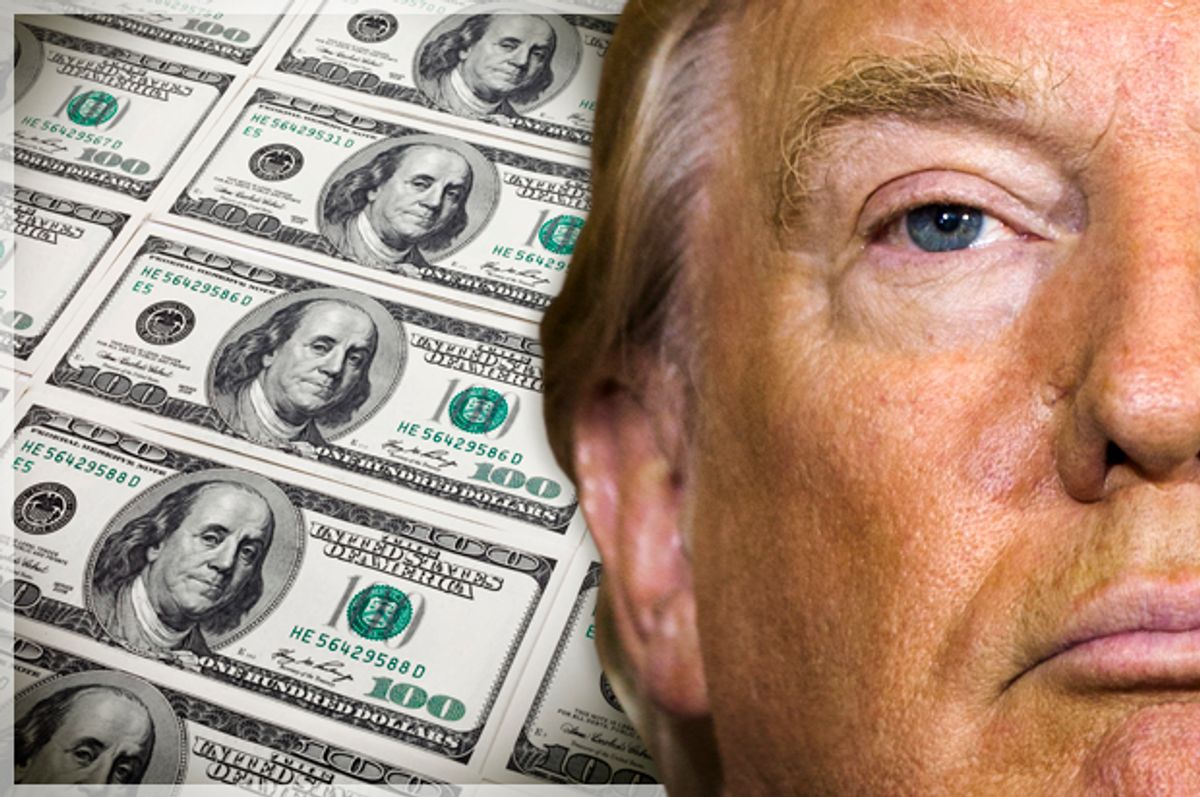Why should anyone be surprised when President Donald Trump's biggest liabilities when it comes to his conflicts of interest — the properties bearing his name — take center stage? That's what we're looking at this week.
The wealthy and well-connected are paying to use Trump's golf courses — and, quite possibly, to connect with the president
An investigation by USA Today discovered that at least 50 executives with federal contracts and at least 21 lobbyists and trade group officials are members of one of Trump's three golf courses in Florida, New Jersey and/or Virginia. At least two-thirds of those individuals played at the golf course during one of the 58 days when Trump was also there, which raises serious questions about whether they may have had inappropriate interactions with the president.
As the report explained:
Among Trump club members are top executives of defense contractors, a lobbyist for the South Korean government, a lawyer helping Saudi Arabia fight claims over the Sept. 11 terrorist attacks and the leader of a pesticide trade group that sought successfully to persuade the Trump administration not to ban an insecticide government scientists linked to health risks.
Don't forget Russia
There isn't much to report on yet here, but the emerging story could prove to be one of the biggest news bombshells of 2017. Trump entered a non-binding agreement to start formal negotiations over licensing a Trump Tower in Moscow in 2015 — right around the same time that he began running for president. This was revealed in a statement by Trump's corporate attorney Michael Cohen to congressional investigators last week.
Sen. Lindsey Graham of South Carolina, a Republican who has harshly criticized Trump, explained the import of this revelation on Tuesday:
It seems to be inconsistent with the idea that the Trump Organization was having no business dealings with Russia. That seems to be inconsistent with that statement.
The president's legal team wants to redefine the word "emolument" to make Trump's actions less shady
Back in January, Trump's lawyer Sheri Dillon claimed that the president could not have violated the Constitution's so-called emoluments clause — which prohibits elected officials from receiving gifts from foreign leaders that could potentially corrupt them — because it "has never been interpreted, however, to apply to fair value exchanges that have absolutely nothing to do with an office holder. No one would have thought when the Constitution was written that paying your hotel bill was an emolument. Instead, it would have been thought of as a value-for-value exchange; not a gift, not a title, and not an emolument."
This week Georgetown law professor John Mikhail and his researchers proved Dillon incorrect. After studying 40 dictionaries that were published between 1604 and 1806, they found that 37 of them defined "emoluments" with "a broader meaning that would encompass sort of the profits of ordinary market transactions." Even the other three used a definition that was "tied to the salary or official duties of an office."

Shares